#aeneis
Text
Juno/Hera @ the Trojans

#juno#romans#roman mythology#aeneis#the aeneid#virgil's aeneid#aeneas#juno goddess#ancient rome#roman history#classics#classical civilisation#classical history#classical studies#jupiter#usc trojans#the trojan war#greek mythology#classical mythology#hera greek mythology#greek gods#roman gods#tagamemnon#the iliad#iliad#achilles#hector#hera#zeus#apollo
41 notes
·
View notes
Text
zaman zaman, kendi içimin derinliklerinde vergilius'un engin, hüzünlü manzaralarına,gözyaşı ile perçinlenmiş alacakaranlıklarına rastlamışımdır.
marguerite yourcenar - hadrianus'un anıları
#kitap#edebiyat#blogger#felsefe#kitaplar#blog#kitap kurdu#şiir#marguerite yourcenar#hadrianus'un anıları#marcus aurelius#kendime düşünceler#meditations#friedrich nietzsche#ecce homo#tan kızıllığı#vergilius#aeneis#homeros#ilyada#odessey#odesseius#king oidipus#kral oidipus#hamlet#william shakespeare#karl marx#karl marks#bilgenin sarsılmazlığı üzerine#seneca
8 notes
·
View notes
Text
On the carelessness of Aeneas
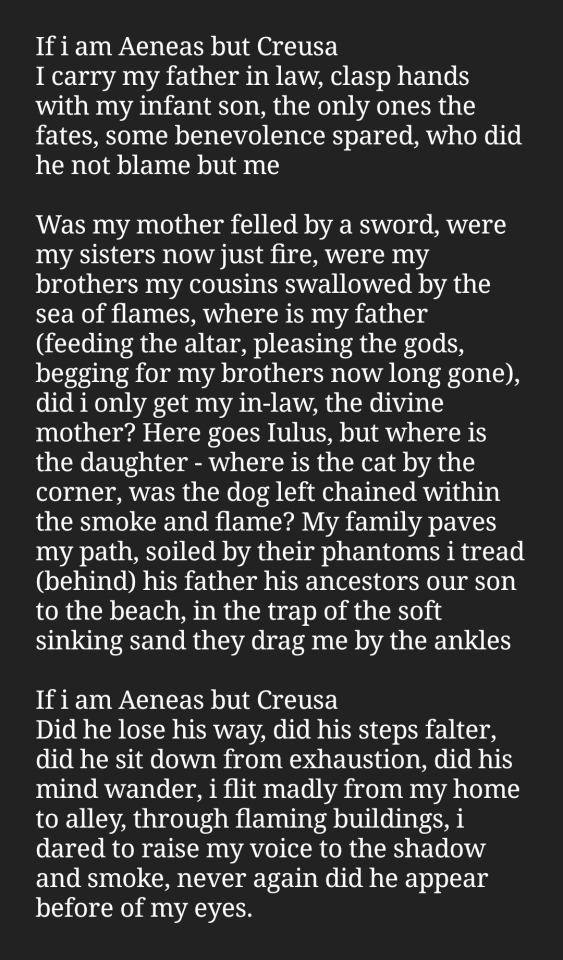
#the aeneid#aeneid#aeneis#creusa#aeneas#latin#poetry#hello im doing my BA thesis on creusa#im covered in blood frothing at the mouth#if you disagree with my interpretation no you don't#wildkitte
2 notes
·
View notes
Text
Im Bann des verführerischen Feindes 02: Ulululululu
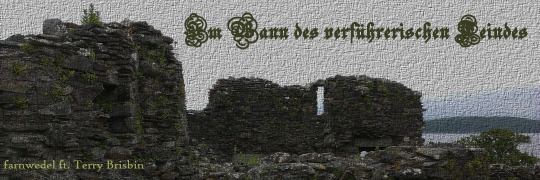
Lara wird nach der Hochzeit gebadet und angezogen.
[Bastis] Befehl lautete, dass der Beischlaf vor dem Essen stattfinden sollte.
Lara weiß jetzt schon so prinzipiell, wie das funktioniert mit Frauen und Männern, aber mit einem Fremden? Noch dazu mit *ron-weasley-stimme* dem Feind?
Etwas tief in Lara verhielt sich ganz still und wartete auf bessere Zeiten, um den Kampf gegen ihn aufzunehmen.
Basti kommt rein und bietet ihr Wein an. Einfühlsam, wie er ist, trinkt er auch einen Schluck aus ihrem Becher, um zu beweisen, dass der Wein nicht vergiftet oder sonstwie präpariert ist.
Sie trinkt den Becher leer, er küsst sie, sie reißt sich los und legt sich aufs Bett, nachdem sie die Tagesdecke entfernt hat. (Darauf sieht man das Blut nicht so gut. Sie denkt aber auch an alles.)
Es gefiel ihm, dass sie ihm bei jedem Schritt die Stirn bot.
Natürlich gefällt dir das, Basti. 😏
Er meint, er werde ihr „so viel Entscheidungsfreiheit lassen, wie [er] kann“. Er zieht sie beide aus und küsst sie wieder.
Die beiden haben deutlich früher Sex als Adilette und Will, so viel kann man sagen. Lara gefällt’s natürlich, wenn auch gegen ihre Absichten, aber wat soll man machen, die Klitoris ist halt die Klitoris.
Als sie fertig sind, wischt Sebastien zuerst sich und dann – zu ihrem Erstaunen – auch Lara sauber, doch dann reicht er einem Typen vor der Tür das blutige Laken und sie fühlt sich wieder verraten und verkauft.
Warum sie das jetzt so überrascht, verstehe ich nicht ganz, natürlich brauchte Robert the Bruce irgendeinen Beweis, dass sie verheiratet sind. Und Heiratsurkunden sind wohl gerade nicht so en vogue. Außerdem hat sie doch vorher selbst dran gedacht, sich direkt auf das Laken zu legen.
#im bann des verführerischen feindes#Hochzeit!#hochzeitsnacht#der titel ist angelehnt an die aeneis. wo es bei aeneas' und didos parodie einer hochzeitsnacht heißt#'ulularunt [...] nymphae'#also 'die nymphen heulten' und 'ulularunt' ist lautmalerisch#...egal jedenfalls soll es für ne nicht besonders romantische hochzeit stehen
3 notes
·
View notes
Text

Dude I‘m not even kidding. In favor of having to bring in two bad tests into our grade we can instead hand in a meme about the Aeneis and get credits. I love my latin teacher 😭🫶
#my smile as soon as she said we were going to be looking at memes now and rating them#istg I got this grade in the bag I‘ll make the most high quality memes for this woman ever to be created about the topic of the aneas#The aneis*i‘m insane#I didn‘t think I‘d be allowed to make memes for extra credit this close to graduating but I‘m not complaining#pitskederdoenerhaendler#the Aeneis#vergil
0 notes
Text
There is literally not a single fandom that does not have a Doctor Who crossover fic. The Aeneis? Doctor Who crossover fic. Waiting for Godot? Doctor Who crossover fic. Find a fandom that foes not have a Doctor Who crossover fic I dare you
#doctor who#the doctor#dr who#the ninth doctor#the 9th doctor#the tenth doctor#the 10th doctor#the eleventh doctor#the 11th doctor#the twelfth doctor#the 12th doctor#the thirteenth doctor#the 13th doctor#the fourteenth doctor#the 14th doctor#the fifteenth doctor#the 15th doctor#christopher eccleston#david tennant#matt smith#peter capaldi#jodie whittaker#ncuti gatwa#fan fiction#fanfic#ao3#ao3 fanfic
25 notes
·
View notes
Text
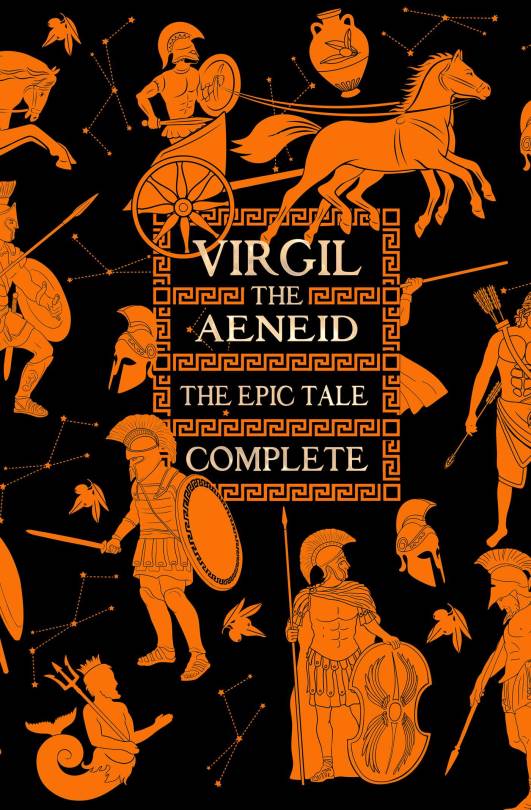
#the aeneid#vergil#epic#book poll#have you read this book poll#polls#i will not say virgil i dont care what anyone says
35 notes
·
View notes
Text

Aeneis🤘🤌
90 notes
·
View notes
Note
18, 27, 44 for the ask game <3
Hello my sweet Hannah,💌 (@the-chronicles-of-a-bookworm )
let's see what you asked me …
Please reblog the quiz so I can ask you some questions too (if you feel like obv) !
Find all the questions here

Who is the last person you texted? 💬
It's @shakethatsassyass , she shows me a bit of her journey and I distract her with silly things (she'll tell you what I send her if she feels like it).
What's your favorite book? Or just one you've read a few times?
From an avid reader like you, I could only expect this question.
📖 So, the book I have read over and over again that always moves me is 'The Sleeping House' by Jonathan Coe.
📖 My favourite book is probably "The idiot" by Dostoevskij (the duality of pureness/evil is magnetic) but I can tell you that any of his books are worth to read, they just change your soul for better. Among the authors who have shaped me as a woman and whom I recommend to everyone are Anais Nin (the uncensored diaries), Simone de Beauvoir, Doris Lessing and Marguerite Duras (the lover ) in whose works I have always found inspiration to make contact with my own femininity.
📖 Among the contemporary Ian McEwan or Donna Tartt probably wrote some of my fave books.
📖 The books of my heart are these : Publio Virgilio Marone -Aeneis , Shakespear - Othello, Charlotte Brontë - Jane Eyre, but also some good German classics like "Ansichten eines Clowns" by Heinrich Böll or the poetry of Erich Fried, “Es ist was es ist”.
44. Who was the last person you said “I love you” to?
What a good question.
So, I will make a due specific.
It's relatively recently that I've felt free to express such important affection freely, but it's really liberating and important to allow yourself the luxury of communicating your feelings and letting others have the joy of feeling loved.
🩷I love you in a friendly sense
I probably wrote it to Mer (@storyhuntress13 ) this morning wishing her a happy birthday, on a verbal level I said it to my best friend 20 minutes ago, closing a videocall.
❤I love you in a romantic sense
I said it a few times to a guy with whom I shared a very immature but very meaningful story, and whom I will always thank for accepting me as I am. This kind of confession is the one that comes least spontaneously to me, I really have to 'can't take it anymore' to express it.
Maybe it is a bit silly, but I have time to improve!
Sorry for the length, I got carried away!
love you lots,
V.
-> to the questions

15 notes
·
View notes
Text
Ezzel a produkciójával önmagát is állattá kvalifikálta, olyanná, amely nem is létezik: neki Jorge Luis Borges Képzelt lények könyve c. munkájában a helye. Mondjuk ő a Kiméra, ez az oroszlánfejű, kecskehasú, kígyófarkú lény, vagy ahogy Vergilius megemlékezik róla az Aeneis VI. énekében, ő a „lángköpő”; Plutarkhosznál szimpla kalózkapitány, amúgy sosem látott vagy tapasztalt szörnyeteg, aki téveszméiről, fenyegető, félelmet keltő kijelentéseiről vált ismertté. Rabelais, a XVI. századi zseniális francia író találó iróniával tette fel a kérdést: „egy semmiben imbolygó kiméra vajon ehet hátsó gondolatokat?”
3 notes
·
View notes
Photo

Nisvs et Evrialvs primi,
Evrialvs forma insignis vridiqve ivventa,
Nisvs amore pio pveri
(Vergilius, Aeneis: V. 294-296).
4 notes
·
View notes
Text
hey guys i think actually vergil might have had a really simple & straightforward meaning in the aenei— *gets shot*
4 notes
·
View notes
Text

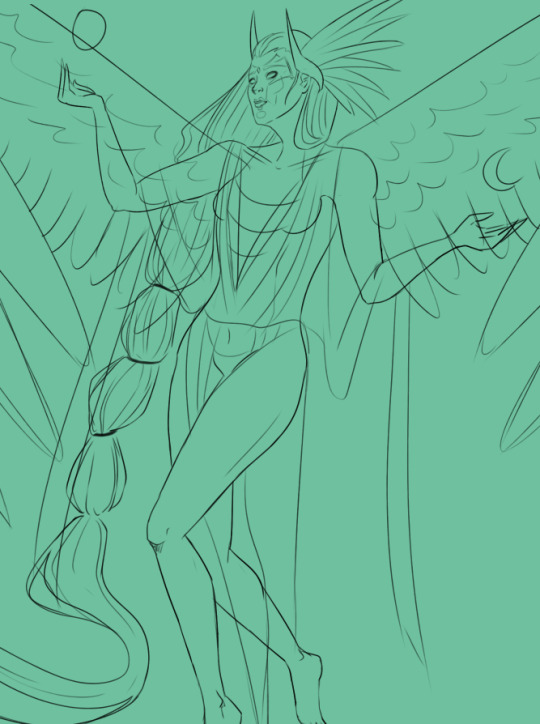
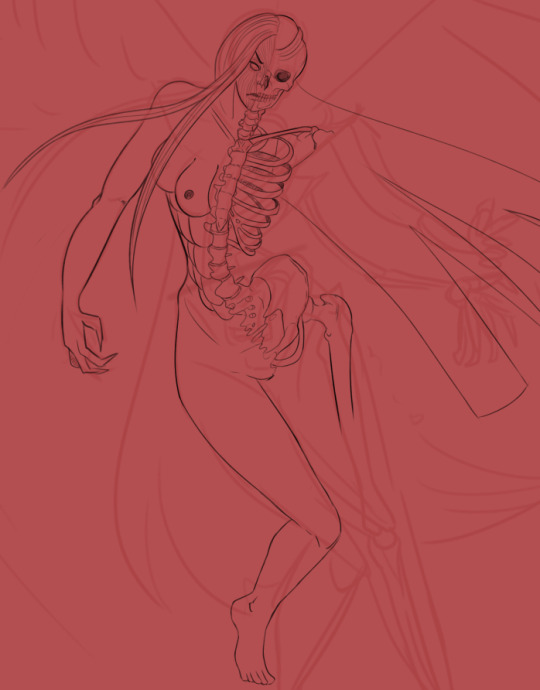
I need to finish the Primordial Gods (aka dysfunctional divine siblings) arts before I introduce them in my fic, which is still 2 whole acts away, but the procrastination is real.
Anyway, why not talk Gods while we're at it?
[HUGE spoilers for Song of Infinity, I mean not really, as it was covered in Draconic Chronicle a bit, but I kinda want to briefly elaborate]
The Primordial dictated the rules Rivellon was meant to obey, everything began with them.
First, came Life. Astarte, also known as the Sun Mother is a deity who keeps watch over everything that thrives, light, color, and love were born out of her essence and she is the sole deity capable of weaving the chaotic Cosmic Dust into its refined form- Source. Because all life is meant to end (a concept her brother challenged) her original sin is Sadness, and she is prone to having depressive episodes that greatly hinder her abilities. After the War of Creation, her tears have birthed a Man, coiling the concept of reproduction, longing, and attraction within mortal races.
Second, came Death. The God King, or originally, Veles (because I'm a slav that's why; also a plethora of other things but let's just stick with slav explanation). He was meant to rule over the realm of the dead, the Void, where souls would wait for reincarnation. With death, inseparably, walks fear. God King was first to entirely give into his Original Sin, which caused him to abandon his role as a Deathbringer and come up with a race indifferent to it - The Eternals. A race he fashioned against the wish of the Universe (the entity that created Primordial) itself. He masqueraded as the Eternal King, living his delirious dream until the Seven's rebellion. He is responsible for the death of the First Guardians, as well as Dragons' inability to reincarnate. He also spawned Chaos.
Third, came Rebirth. The youngest of the three Haume is ever-shifting,ever-flowing blood, also known under the name of Moon Mother. She revels in pain; the only link between death and birth. However, because of her nature, she lacks total control over her powers or even her form, and that earns her Wrath.
Her blood created the first Woman, coiling the concepts of passion, childbirth...and periods (thanks Haume, v cool). Her element of choice is fire but her celestial body (moon) has the power over tides.
Every Primordial has their own language, which they use to operate their artifacts of creation - Rings. Life speaks in the past (what was), Void speaks in the present (what is) and Rebirth speaks in the future (what will be). Rivellon is a word in Void Primordial meaning 'Prospering Realm of Veles'.
Eternal is a descendant of this tongue.
Examples Eternal words;
Xsa’en - [One] shimmering under a dark star
Mae'ven - [One] born under an unbridled star
Rivellis - referring to Eternals, (literally) prospering [people], people of prosperity
Aenei - chime of a stardust bell
Primordial languages combined created the first Ancient Dragonic tongue.
Examples of Ancient Dragonic words;
Annadsyl’Aegnishe - Gateway to the Sanctuary of Aegis’ Blazing Heart
Examples of Modern Dragonic words:
Corvus- Raven
Anathema- Curse
Speaking of Dragonic and Dragons - the only real God of Rivellon is a creation of the Three; Ouroboros, The All-Father, the First of the Dragons.
Because of his triple legacy, Ouro shares characteristics of all Primordial, being the perfect blend of his creators . Note: because of the limitations of the mortal tongue 'Ouroboros' refers to the full three-aspect deity as well as his Rebirth aspect.
The names of the First Dragon:
Ouroboros (the snake consuming its own tail)
Originating from Haume. Continuity aspect, its attributes being fire and water
Aegis (the all-encircling shield)
Originating from Astarte- Protection/Nursery aspect, its attributes being sky and earth
Dorchatas (The ever-present dark)
Originating from Veles - Stagnation/Degradation aspect, its
The firstborn of Ouroboros, as well as the first Demigod/Avatar, was Patriarch the Black
That's all for today's lore dump. In the next one, we will talk about more down-to-earth matters, listing Rivellonian months, weekdays, and respective holidays across all cultures and races
#nerd talks lore#song of infinity reference#fanlore#so much fanlore#divinity original sin 2#dos2#divinity series#ravings of mad lorewoman
5 notes
·
View notes
Note
whats the aeneis about ? (aeneid?) (i could google it i know but yr answers probably more fun)
so if the iliad is the main book, the odyssey is the sequel, then the aeneid is like. the reboot spin off of it. the iliad and the odyssey are both greek but the romans were like “wow we love this sooo much we love epic poetry. but do you know what we love more than epic poetry? ourselves!” so it’s about aeneas, a trojan who left troy after it fell, traveling to italy, founding rome, and winning a war over the Latins who also lived there. there’s obviously more to it than that but like. generally that’s the gist… 🏺☀️🐪⭐️🌼💛
#haven’t started it quite yet im going to read it when summer starts <3333#mwah ily when my friends ask me stuff like this cause i get to talk about stuff i love to my besties <3333#samael speaks#angel radio#gerry <3
6 notes
·
View notes
Text

THE SALAMANDERS
The third group of elementals is the salamanders, or spirits of fire, who live in that attenuated, spiritual ether which is the invisible fire element of Nature. Without them material fire cannot exist; a match cannot be struck nor will flint and steel give off their spark without the assistance of a salamander, who immediately appears (so the mediæval mystics believed), evoked by friction. Man is unable to communicate successfully with the salamanders, owing to the fiery element in which they dwell, for everything is resolved to ashes that comes into their presence. By specially prepared compounds of herbs and perfumes the philosophers of the ancient world manufactured many kinds of incense. When incense was burned, the vapors which arose were especially suitable as a medium for the expression of these elementals, who, by borrowing the ethereal effluvium from the incense smoke, were able to make their presence felt.
The salamanders are as varied in their grouping and arrangement as either the undines or the gnomes. There are many families of them, differing in appearance, size, and dignity. Sometimes the salamanders were visible as small balls of light. Paracelsus says: "Salamanders have been seen in the shapes of fiery balls, or tongues of fire, running over the fields or peering in houses." (Philosophia Occulta, translated by Franz Hartmann.)
Mediæval investigators of the Nature spirits were of the opinion that the most common form of salamander was lizard-like in shape, a foot or more in length, and visible as a glowing Urodela, twisting and crawling in the midst of the fire. Another group was described as huge flaming giants in flowing robes, protected with sheets of fiery armor. Certain mediæval authorities, among them the Abbé de Villars, held that Zarathustra (Zoroaster) was the son of Vesta (believed to have been the wife of Noah) and the great salamander Oromasis. Hence, from that time onward, undying fires have been maintained upon the Persian altars in honor of Zarathustra's flaming father.
One most important subdivision of the salamanders was the Acthnici. These creatures appeared only as indistinct globes. They were supposed to float over water at night and occasionally to appear as forks of flame on the masts and rigging of ships (St. Elmo's fire). The salamanders were the strongest and most powerful of the elementals, and had as their ruler a magnificent flaming spirit called Djin, terrible and awe-inspiring in appearance. The salamanders were dangerous and the sages were warned to keep away from them, as the benefits derived from studying them were often not commensurate with the price paid. As the ancients associated heat with the South, this corner of creation was assigned to the salamanders as their drone, and they exerted special influence over all beings of fiery or tempestuous temperament. In both animals and men, the salamanders work through the emotional nature by means of the body heat, the liver, and the blood stream. Without their assistance there would be no warmth.
THE SECRET TEACHINGS OF ALL AGES
by Manly P. Hall
c. 1928
Pic. Source: Amorum emblemata, figuris aeneis incisa
by Veen, Otto van, 1556-1629
c. 1608
https://archive.org/details/amorumemblemataf00veen/page/3/mode/1up
4 notes
·
View notes
Text

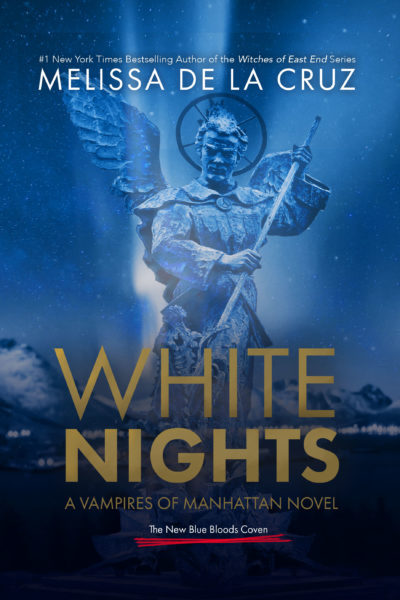
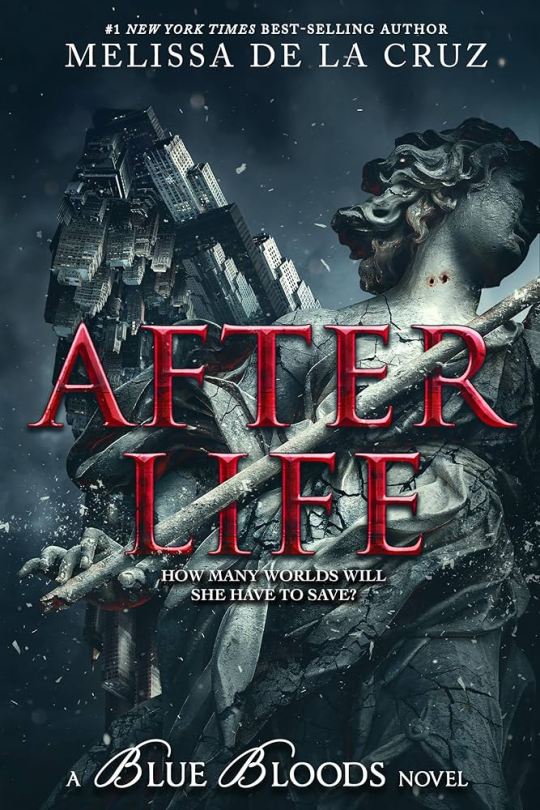
Antike (ca. 2000 vChr. bis ca. 500 nChr.)
Gilgamesch-Epos
Homer: Ilias, Odyssee
Äsop: Fabelsammlung
Caesar, Gaius Iulius: Der gallische Krieg
Vergil: Aeneis
Ovid: Metamorphosen
Tacitus, Publius Cornelius: Germania
Augustinus, Aurelius: Bekenntnisse
Herodot: Historien
Mittelalter (500-1500)
Beowulf
Murasaki Shikibu: Die Geschichte vom Prinzen Genji
1001 Nacht
Nibelungenlied
Gottfried von Straßburg: Tristan
Wolfram von Eschenbach: Parzival
Chaucer, Geoffrey: Die Canterbury-Erzählungen
Renaissance (1500-1600) und
Barock (1600-1720)
Boccaccio, Giovanni: Das Dekameron
Brant, Sebastian: Das Narrenschiff
Machiavelli, Niccolö: Der Fürst
More, Thomas: Utopia
Rabelais, Franois: Gargantua und Pantagruel
Cervantes Saavedra, Miguel de: Don Quijote
Grimmelshausen: Der Abentheurliche Simplicissimus Teutsch
Aufklärung (1720-1785)
Hobbes, Thomas: Leviathan
Fielding, Henry: Die Geschichte des Tom Jones, eines Findlings
Voltaire: Candide
Sterne, Laurence: Leben und Ansichten von Tristram Shandy, Gentleman
Rousseau, Jean-Jacques: Emile oder Über die Erziehung
Kant, Immanuel: Kritik der reinen Vernunft
Sturm und Drang (1765-1790)
Goethe, Johann Wolfgang von: Die Leiden des jungen Werthers
Bürger, Gottfried August: Münchhausen
Klassik (1786-1832)
Defoe, Daniel: Robinson Crusoe
Swift, Jonathan: Gullivers Reisen
Goethe, Johann Wolfgang von: Die Wahlverwandtschaften
Kleist, Heinrich von: Michael Kohlhaas
Romantik (1798-1835)
Arnim, Achim von/Brentano, Clemens: Des Knaben Wunderhorn
Grimm, Jacob und Wilhelm: Kinder- und Hausmärchen
Austen, Jane: Stolz undVorurteil
Eichendorff, Joseph Freiherr von: Aus dem Leben eines Taugenichts
Andersen, Hans Christian: Märchen
Gogol, Nikolai: Tote Seelen
Balzac, Honore de: Verlorene Illusionen, Glanz und Elend der Kurtisanen
Bronte, Charlotte: Jane Eyre
Bronte, Emily: Die Sturmhöhe
Huge, Victor: Die Elenden
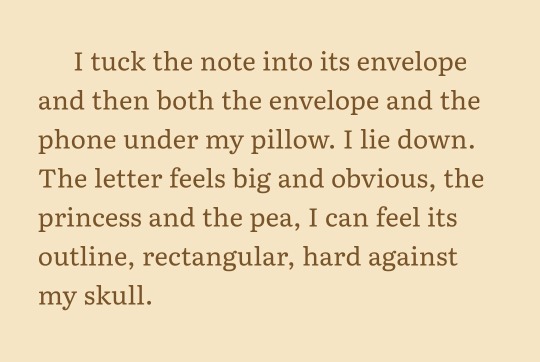
Biedermeier und Vormärz (1815-1848)
Heine, Heinrich: Buch der Lieder, Deutschland. Ein Wintermärchen
Büchner, Georg: Lenz
Droste-Hülshoff, Annette von: Die Judenbuche

Moderne (1850-1968)
Melville, Herman: Moby Dick
Beecher Stowe, Harriett: Onkel Toms Hütte
Keller, Gottfried: Dergrüne Heinrich
Dickens, Charles: Große Erwartungen
Dostojewski, Fjodor: Der Idiot
Tolstoi, Lew: Krieg und Frieden
Mark Twain: Tom Sawyers Abenteuer
Storm, Theodor: Der Schimmelreiter
Wilde, Oscar: Das Bildnis des Dorian Gray
Lagerlöf, Selma: Gösta Berling, Nils Holgersson
Fontane, Theodor: Effi Briest
Mann, Thomas: Buddenbrooks, Der Zauberberg
Proust, Marcel: Auf der Suche nach der verlorenen Zeit
Joyce, James: Ulysses
Babel, Isaak: Die Reiterarmee
Fitzgerald, Francis Scott: Der große Gatsby
Kafka, Franz: Der Prozess, Das Schloss
Woolf, Virginia: Mrs. Dalloway
Hesse, Hermann: Der Steppenwolf, Das Glasperlenspiel
Döblin, Alfred: Berlin Alexanderplatz
Remarque, Erich Maria: Im Westen nichts Neues
Roth, Joseph: Hiob, Radetzkymarsch
Traven, B.: Das Totenschiff
Fallada, Hans: Kleiner Mann - was nun?
Mann, Klaus: Mephisto
Steinbeck, John: Früchte des Zorns
Orwell, George: Farm der Tiere
Machfus, Nagib: Die Midaq-Gasse
Camus, Albert: Die Pest
Greene, Graham: Der dritte Mann
Dürrenmatt, Friedrich: Der Richter und sein Henker
Nabokov, Vladimir: Lolita
Tomasi di Lampedusa, Giuseppe: Der Leopard
Frisch, Max: Homo Faber
Aitmatow, Tschingis: Dshamilja
Grass, Günter: Die Blechtrommel
Solschenizyn, Alexander: Ein Tag im Leben des Iwan Denissowitsch
Wolf, Christa: Der geteilte Himmel
Bulgakow, Michail: Der Meister und Margarita
Garcia Märquez, Gabriel: Hundertjahre Einsamkeit
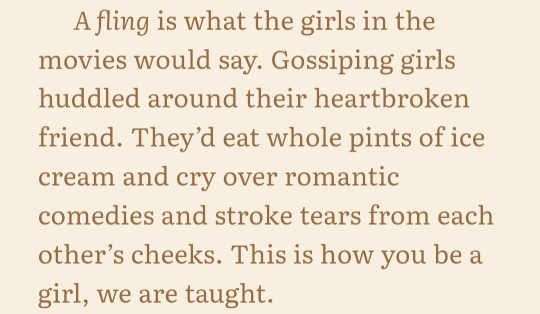
Gegenwart (ab 1968)
Lenz, Siegfried: Deutschstunde
Kertesz, Imre: Roman eines Schicksallosen
Eco, Umberto: Der Name der Rose
Jelinek, Elfriede: Die Klavierspielerin
Kundera, Milan: Die unerträgliche Leichtigkeit des Seins
Morrison, Toni: Menschenkind
Vargas Llosa, Mario: Das Fest des Ziegenbocks
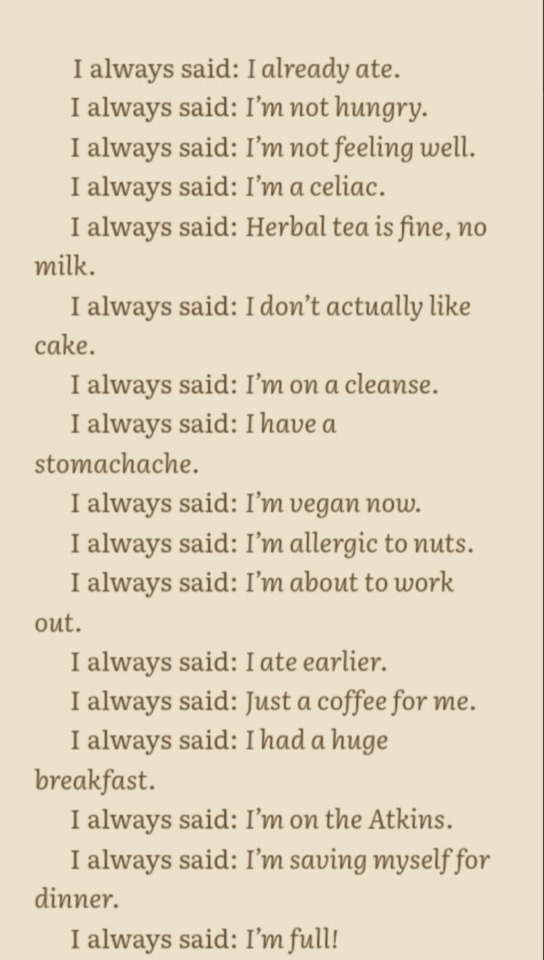
0 notes